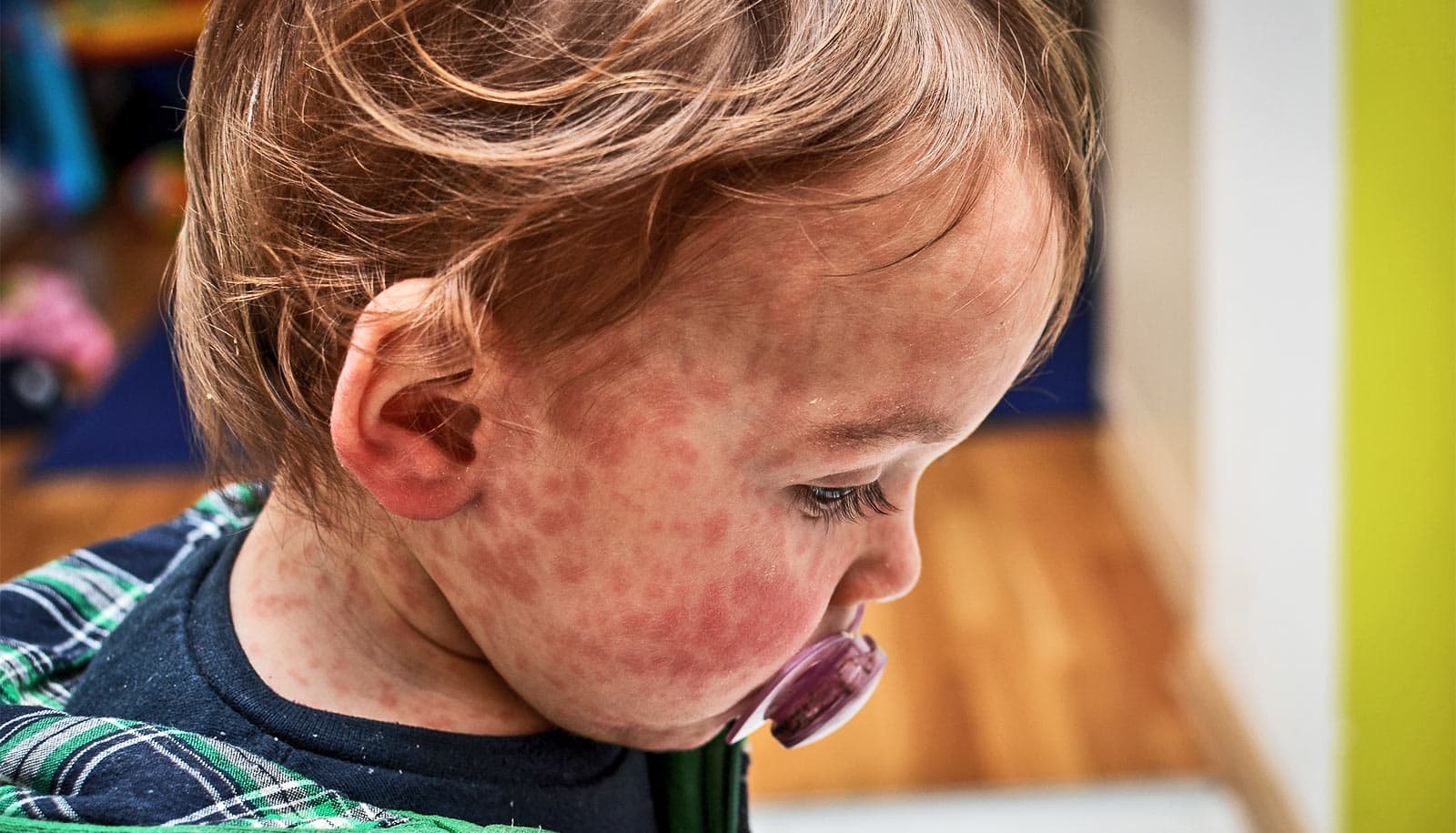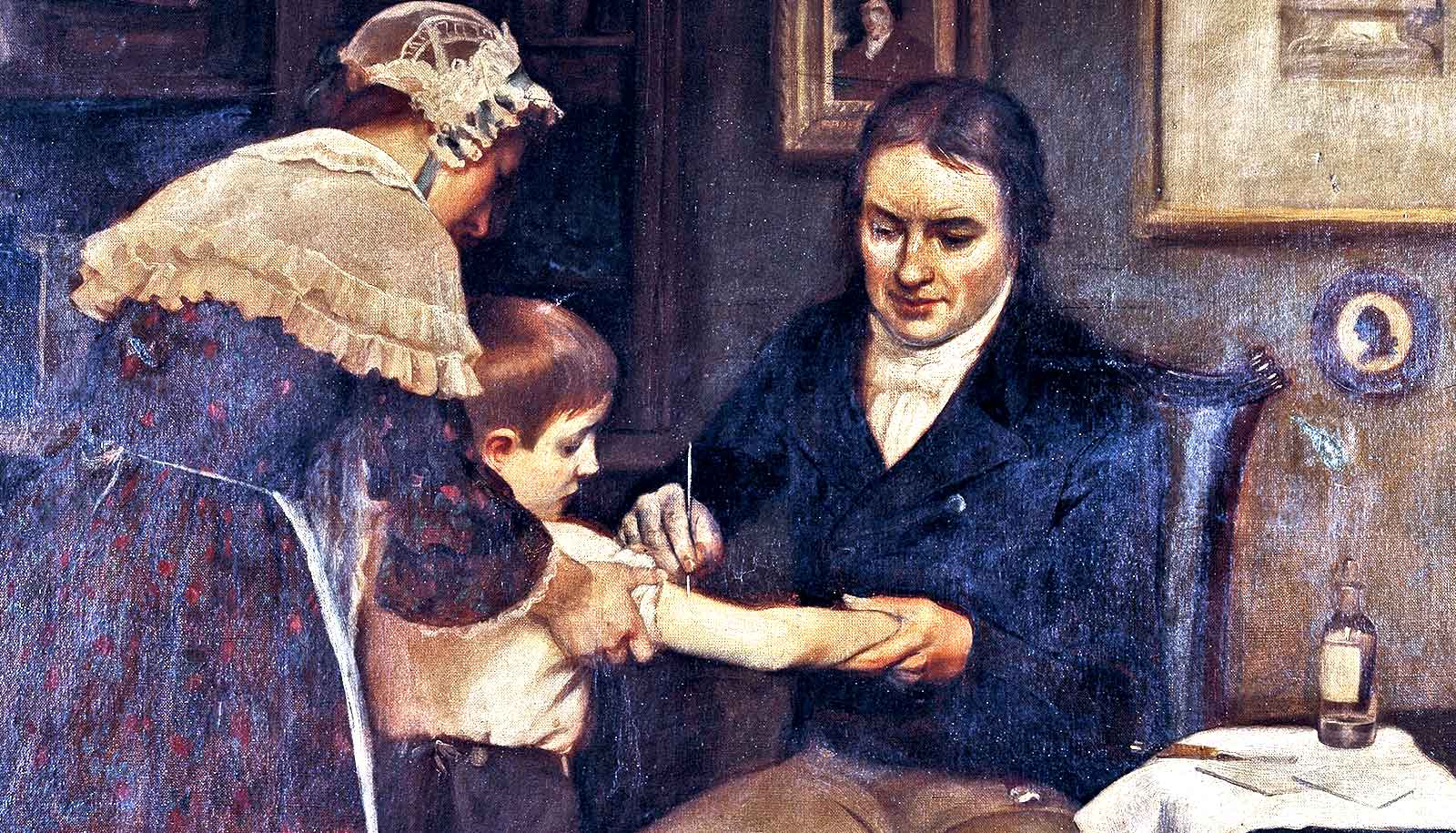An infectious diseases expert has answers for you about measles symptoms, prevention, and how concerning the latest numbers are.
It’s one of the most contagious viral diseases in the world—and outbreaks are popping up across the United States. More than 60 measles cases have been reported so far this year in 17 states, from Washington to Florida; that’s more than were confirmed in all of 2023.
The spike comes amid an ominous jump in global infections: last November, the World Health Organization reported an 18% increase in cases from 2021 to 2022, to 9 million, and a 43% jump in deaths, to 136,000.
Measles typically starts with a fever, cough, dripping nose, and conjunctivitis, before a rash—one of its most recognizable symptoms—spreads from the head down to the feet. Most people will recover without any long-term issues, but pregnant people and those under 20, particularly younger children, are especially vulnerable; around 20% of people who get the disease will be hospitalized, according to the Centers for Disease Control and Prevention (CDC). If one infected person coughs, sneezes, or breathes in a shared space, they’ll spread measles to 90% of the unvaccinated people around them.
Despite its threat, measles is highly preventable: for the past 20 years, high uptake of the two-stage measles-mumps-rubella (MMR) vaccine has effectively eliminated the disease in the United States.
So, why are so many states reporting cases this year?
“Measles can easily come to the United States by way of unvaccinated travelers, and measles cases have been increasing around the country,” according to a March CDC measles update. “This most commonly happens when people who live in the United States visit countries where there are measles outbreaks. Once someone gets measles and returns to America, measles can spread if people in their community aren’t up-to-date on their vaccinations.”
Before the measles vaccine eradicated the disease in the US, the CDC says there were three to four million cases—and hundreds of deaths—every year. The agency warns that it could become endemic again if vaccination levels tumble further.
Here, Boston University infectious diseases expert David Hamer explains how worried we should be about the latest rise in cases:
The CDC has already recorded more measles cases in the US this year than all of last year. How concerned should people be?
Anyone who is not vaccinated, whether an adult or a child, should be concerned. Measles is a highly contagious virus and can lead to severe complications and even death.
And this is a global issue, not just a domestic issue.
Absolutely! There are more cases than in many years in Europe and many low- and middle-income countries (LMIC) right now. This means both a travel-associated risk and potential for voyagers to import measles into the US.
Given the surge of measles in many parts of the world, both in Western Europe and many LMICs, the potential for travelers to import measles into the US is higher now than it has been in many years.
You believe the numbers are only going to increase. Why?
During the pandemic, many countries, especially LMICs, had challenges with young children accessing their first or second dose of measles vaccine. This means that more outbreaks are now happening and there is a greater potential for travelers—and new migrants—to import the virus into Western Europe, Australia, Japan, and the US. Given vaccine hesitancy and misinformation, there are populations in many high-income countries that have children, and even adults, who are susceptible, so the potential for importation and spread is substantial.
Measles was eliminated in the US in 2000 and most children here are required to be immunized in order to attend school, so where are these outbreaks coming from?
Vaccine hesitancy on the part of some parents due to misinformation, [and] religious and “medical” exemptions to vaccination.
Can you talk about how transmissible this virus is and how serious it can be?
Measles virus is highly transmissible. The reproductive rate, an estimate of how many nonimmune people can be infected by one infected person, is 12 to 18. This is much higher than SARS-CoV-2. In addition, the virus can be airborne, so being near someone who is coughing, sneezing, or even breathing can lead to infection.
How does the virus work in the body?
The virus enters through the respiratory tract and then spreads through the bloodstream to other parts of the body. It can lead to an intense inflammatory reaction that can result in severe disease, pneumonia, and death. Symptoms to look out for include fever, cough, runny nose, red eyes, and a diffuse rash.
The CDC recommends children receive their first dose of the measles vaccine at 12 months and a second dose between ages 4 and 6. Is part of the problem that too many children haven’t received that second dose? Does one vaccine typically offer enough protection?
One dose of the vaccine provides a high degree of protection if it is received at age 12 months or later. The second dose provides protection to the small proportion of children who do not respond to the first dose and serves as a booster that gives long-term protection—probably lifelong. While one dose is good, for long-term protection two doses are necessary.
The CDC is now recommending that anyone over the age of 6 months who is traveling internationally get vaccinated. Should parents of infants between 6 and 12 months think about getting their infants vaccinated regardless of whether they’re traveling overseas?
Absolutely, although this depends on the risk at their travel destination. They should see a specialized travel medicine provider to determine whether this is necessary. While a dose of the vaccine at this age is important for protection during travel, it may not lead to long-term protection, so it does not count as a first dose in the two-dose series, but still may be lifesaving.
Hamer is a BU School of Public Health and Chobanian & Avedisian School of Medicine professor of global health and medicine, as well as a core director and researcher at BU’s Center on Emerging Infectious Diseases who leads the Adult Travel Clinic at Boston Medical Center, BU’s primary teaching hospital.
Source: Boston University



